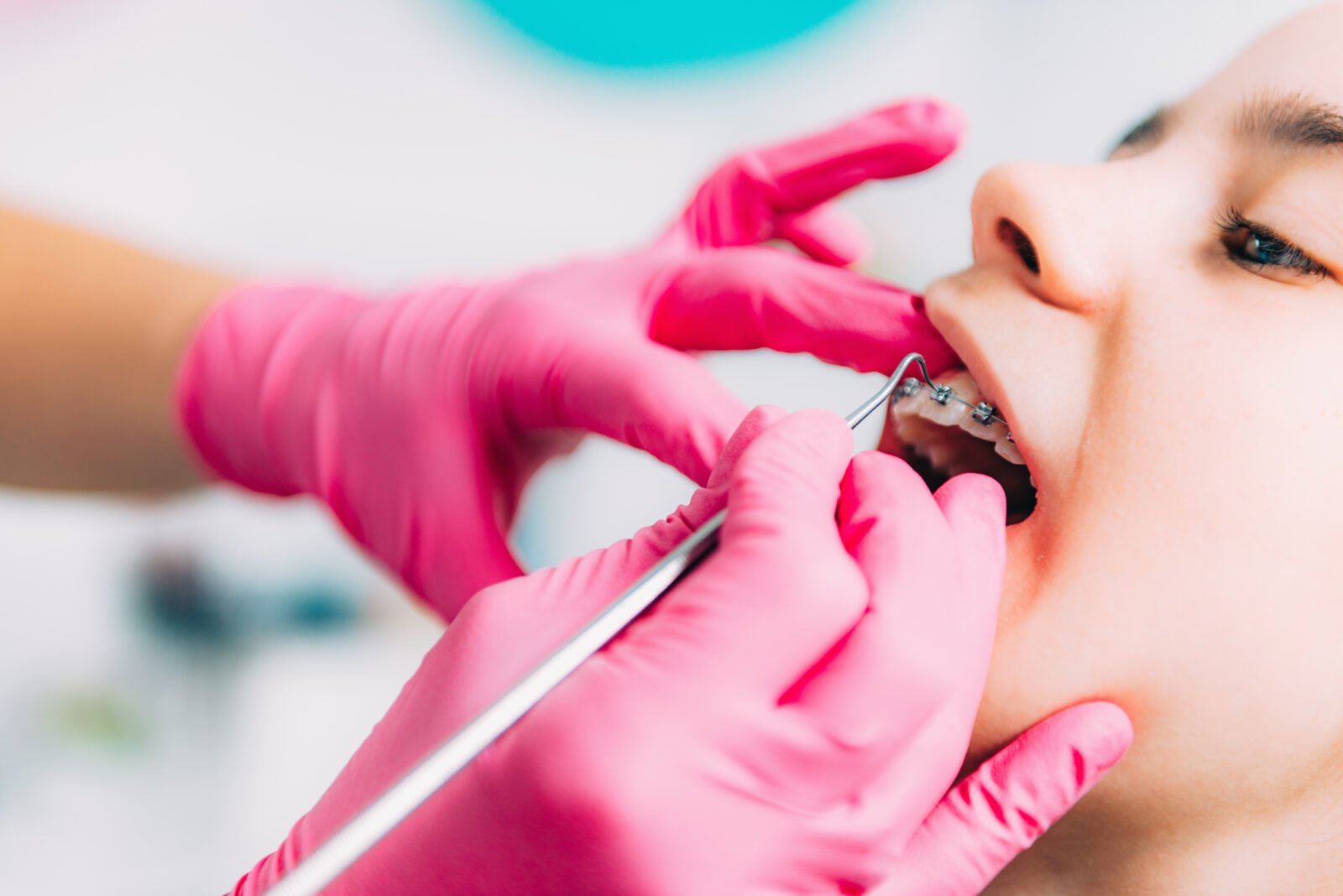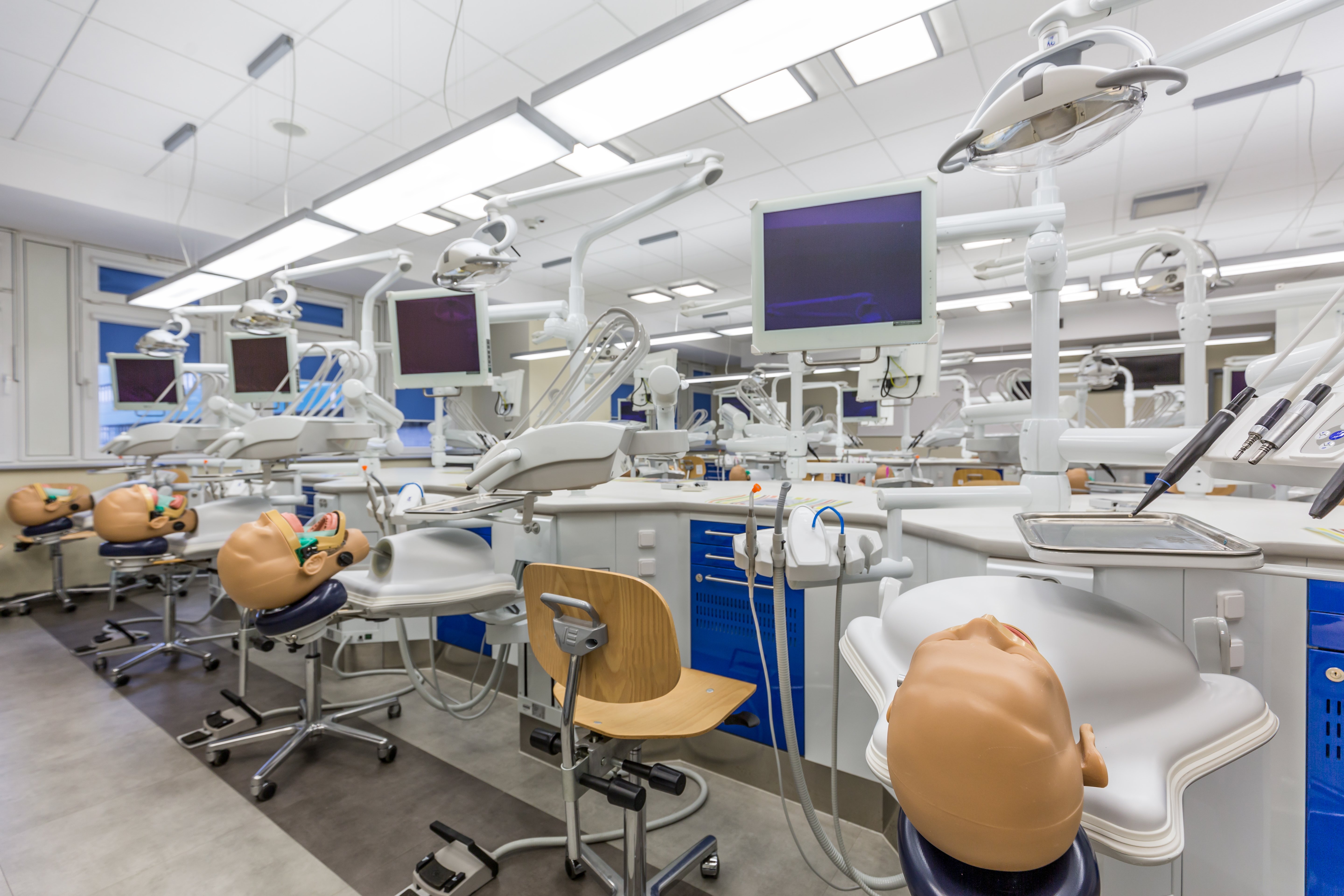Becoming a dentist takes a lot of education and training. After finishing their 4 years of dental school, newly minted dentists receive either a DDS or DMD degree and are licensed as general dentists. At this point, some choose to open up a general dental practice, while others decide to pursue additional post-graduate training in one of the many dental specialties.
Popular specialties that require 1-4 years of additional schooling include Orthodontics (braces), Oral Surgery (extractions and implants), and Endodontics (root canals). There are also dentists who focus their skills on cosmetic procedures like teeth whitening and veneers or on placing dental implants. While these areas don’t have formal advanced programs, dentists can take continuing education courses and limit their practice to these highly sought-after services.
Orthodontics

If you’ve ever seen someone wearing braces, you’re already familiar with orthodontics! Orthodontists are dentists who specialize in fixing crooked, crowded, or misaligned teeth. Using braces, retainers, headgear, and other appliances, they gently move teeth into their ideal positions over several years. While straighter teeth sure look nice, they’re also easier to keep clean and healthy. Orthodontics can also correct bite issues that could lead to problems down the road. It takes an additional 3-4 years of schooling after regular dental school to become an orthodontist. Learn more in “What is an Orthodontist?”
Oral Surgery
Oral and maxillofacial surgeons (say that five times fast!) deal with any issues requiring surgery in the mouth, jaw, face, neck, and head region. This includes wisdom tooth extraction, jaw realignment, cleft lip and palate repair, tumor removal, trauma reconstruction, and dental implant placement. With their in-depth medical training, oral surgeons can conduct complex procedures, diagnose cancers, and prescribe medications. They complete 4-6 years of hospital residency after dental school. Learn more here: “What is an Oral Surgeon?”
Endodontics
Ever had a painful root canal? If so, you have an endodontist to thank for relieving that toothache. Endodontics focuses on the soft inner tissue (pulp) inside teeth that contains nerves and blood vessels. In addition to root canals, endodontists diagnose and treat cracked teeth, recurring pain, and other issues affecting the tooth pulp. They can perform microsurgery on root tips and help restore damaged teeth. Their specialized skills require 2-3 years of further education and training after regular dental school. Learn more by reading our detailed article titled “What is an Endodontist?’
Pediatric Dentistry

Pediatric dentists have extra training to care for the dental needs of babies, kids, and teens. They know how to make checkups fun with games, prizes, and a child-friendly office environment. Pediatric dentists are also up to date on issues like baby bottle tooth decay, losing baby teeth, braces, and wisdom teeth removal. They can guide children to develop good oral hygiene habits that will benefit them throughout life. You can find more info in our article titled “What is a Pediatric Dentist?”
Periodontics
Gum disease can creep up slowly without you even noticing. Periodontists specialize in treating gums and the structures that support your teeth. They can clean deep below the gum line, perform grafts, and address receding gums. Getting ahead of gum disease early prevents pain, tooth loss, and other complications down the road. You’ll be smiling confidently for decades to come. Learn more in our detailed article: ‘What is a Periodontist?’
Prosthodontics

Prosthodontists rehabilitate and restore smiles damaged by trauma, decay, or missing teeth. Using techniques like dental implants, bridges, dentures, veneers, and crowns they can transform your smile. If you have multiple failing, broken, or unsightly teeth, a prosthodontist has the skills to give you a healthy, beautiful new smile that looks and functions like natural teeth. Learn more by reading our detailed article titled “What is a Prosthodontist?”
Dental Public Health
Dental public health specialists work within communities to help groups of people stay as healthy as possible. They educate about prevention, run school and nursing home dental clinics, lobby for fluoridated water, and train staff in underserved areas. These dentists also teach in academic settings to promote ongoing research.
Other Dental Specialties
In addition to the major specialties, there are dentists who focus on very specific populations and techniques. For example, pediatric dentists can further specialize in caring for children with special healthcare needs or disabilities. Pediatric oral surgeons and pediatric orthodontists also sometimes narrow their practices down to focus specifically on performing surgery and adjusting braces for children and teens.
Other subspecialties include oral pathology (studying oral diseases), oral radiology (x-rays and imaging), cosmetic dentistry (enhancing smiles), and geriatric dentistry (caring for older adults). Dentists in these niche areas allow each patient to benefit from highly customized care. No matter your specific dental needs, there is likely a specialist with the exact training and skills to help you maintain your oral health.



